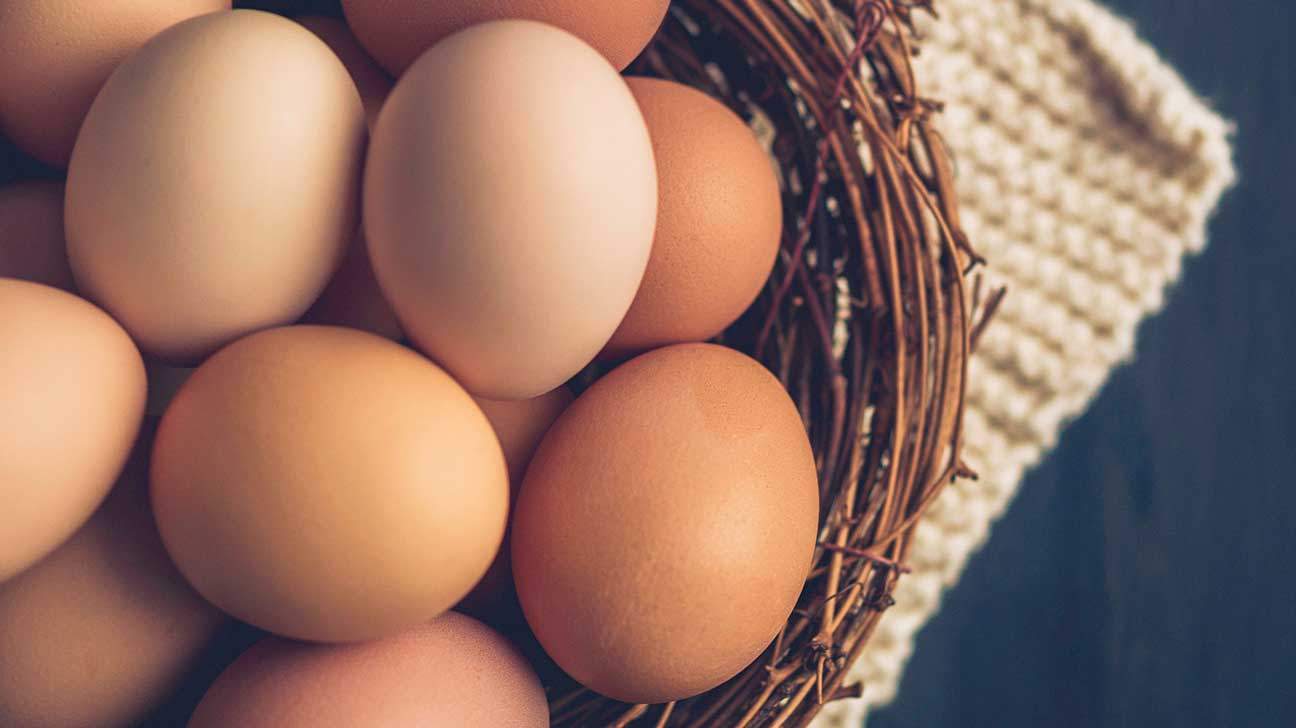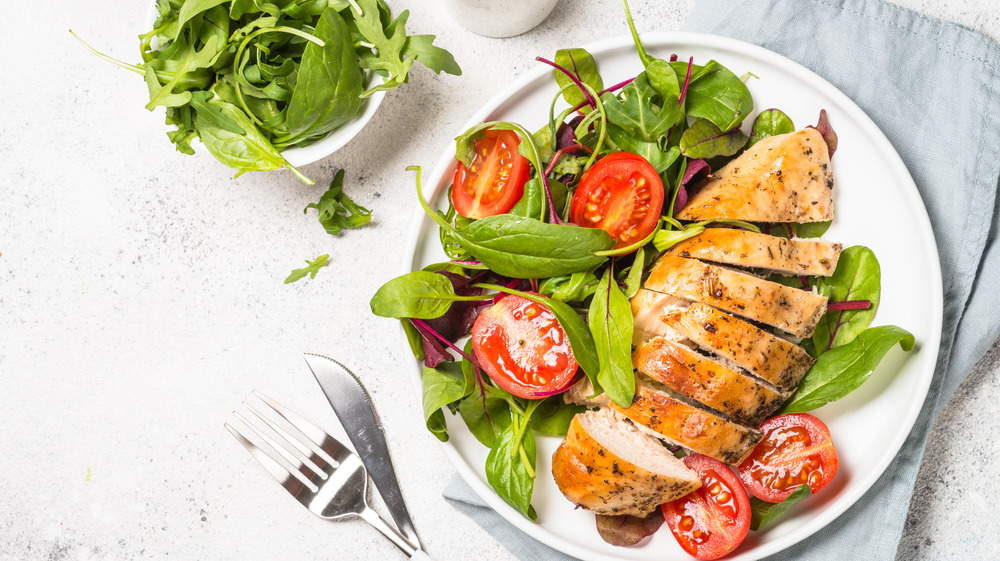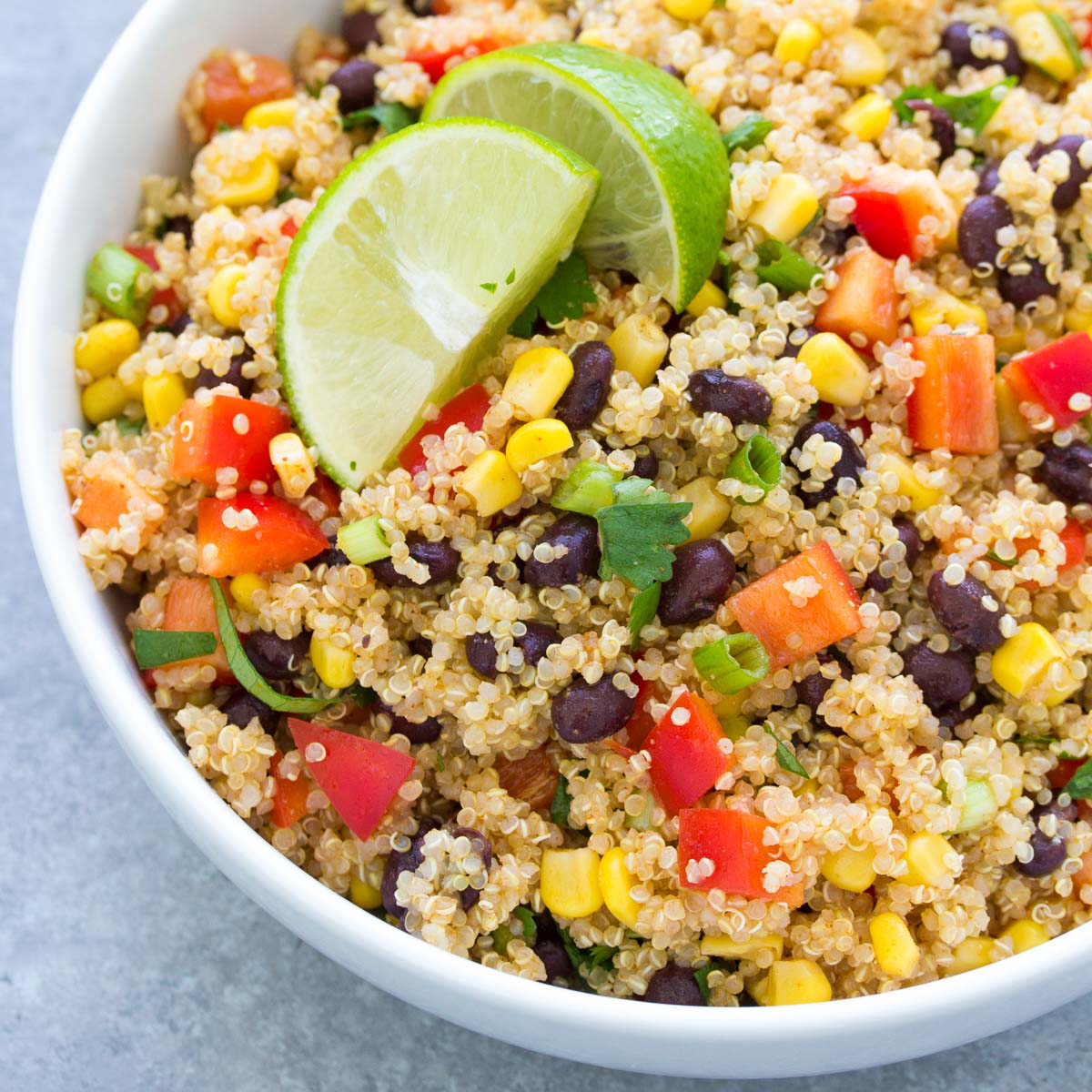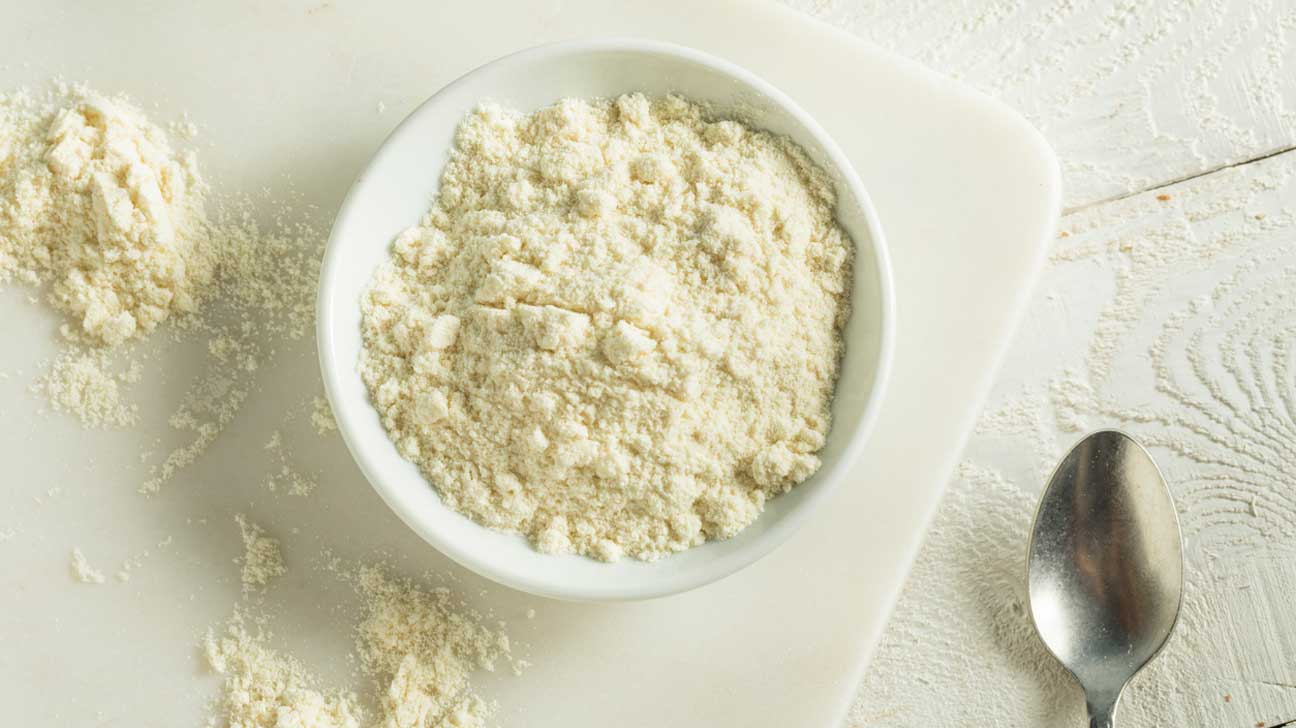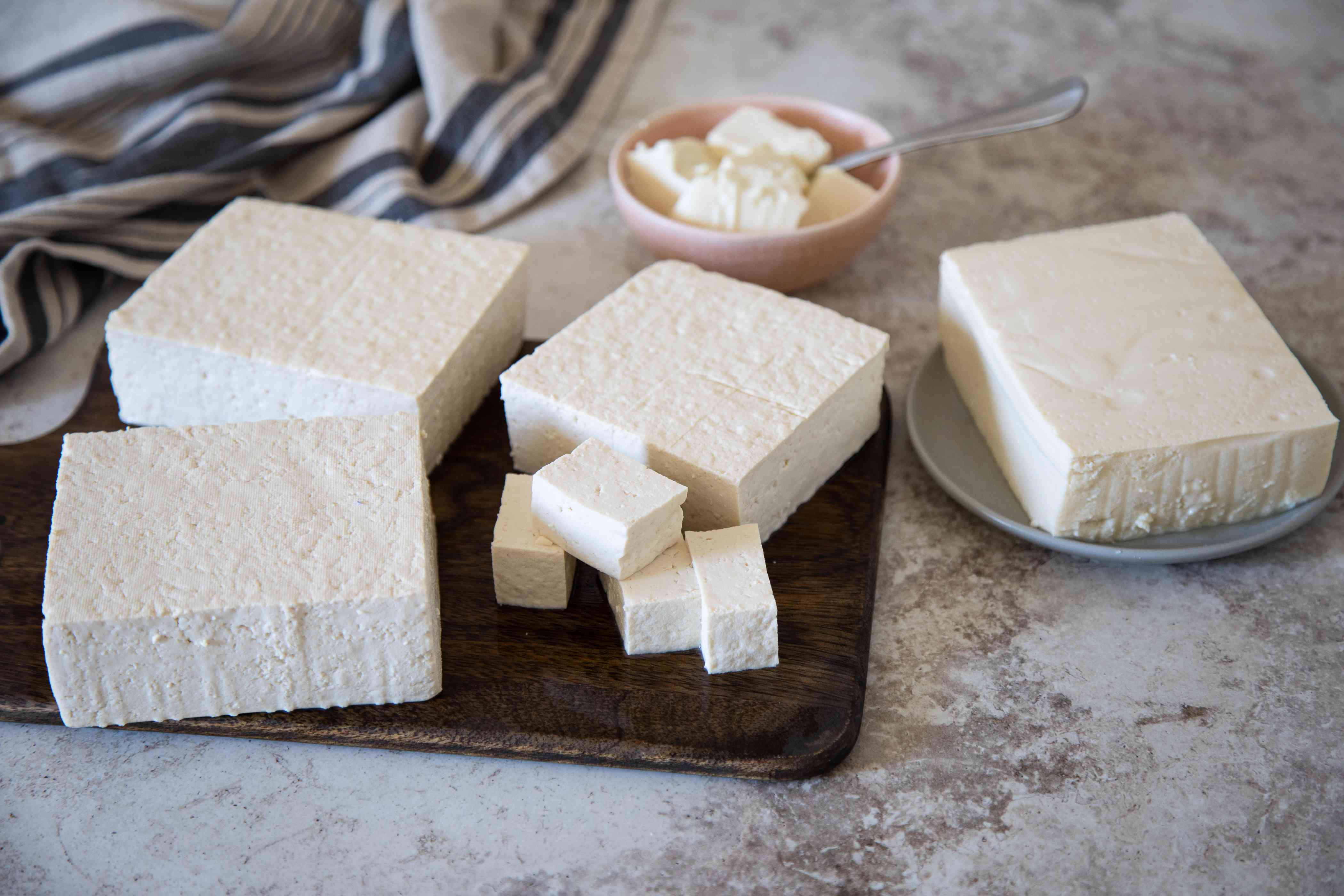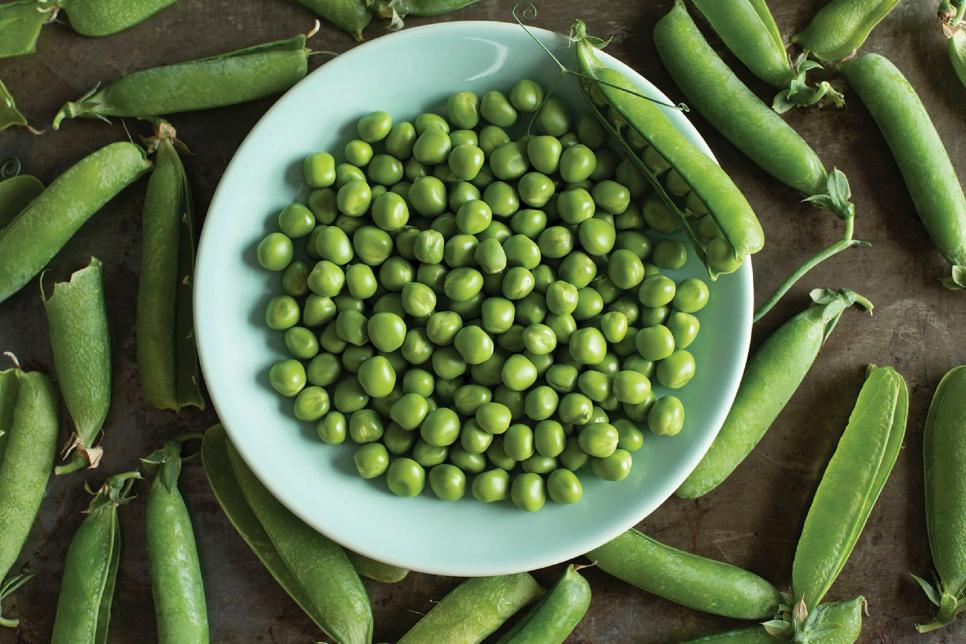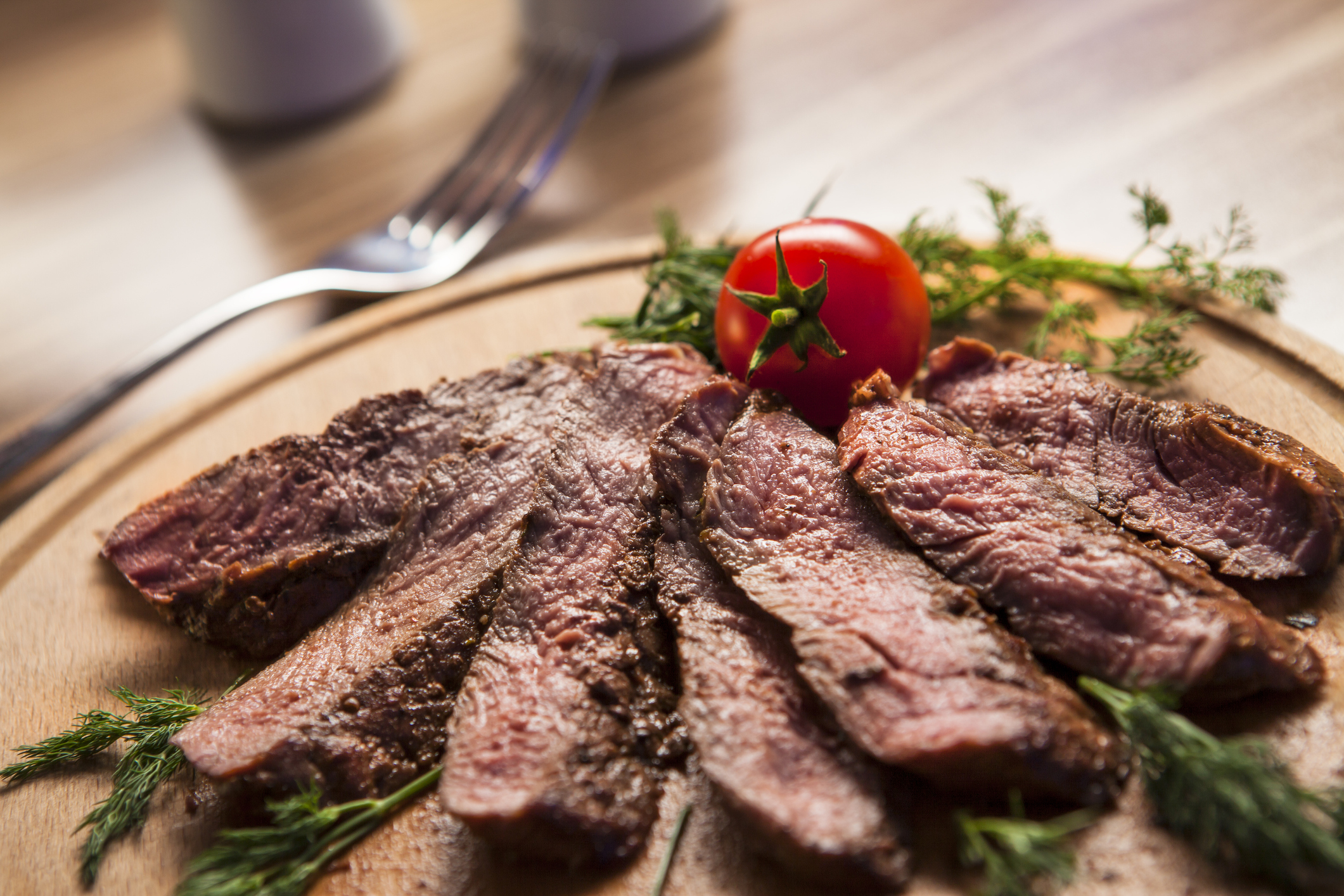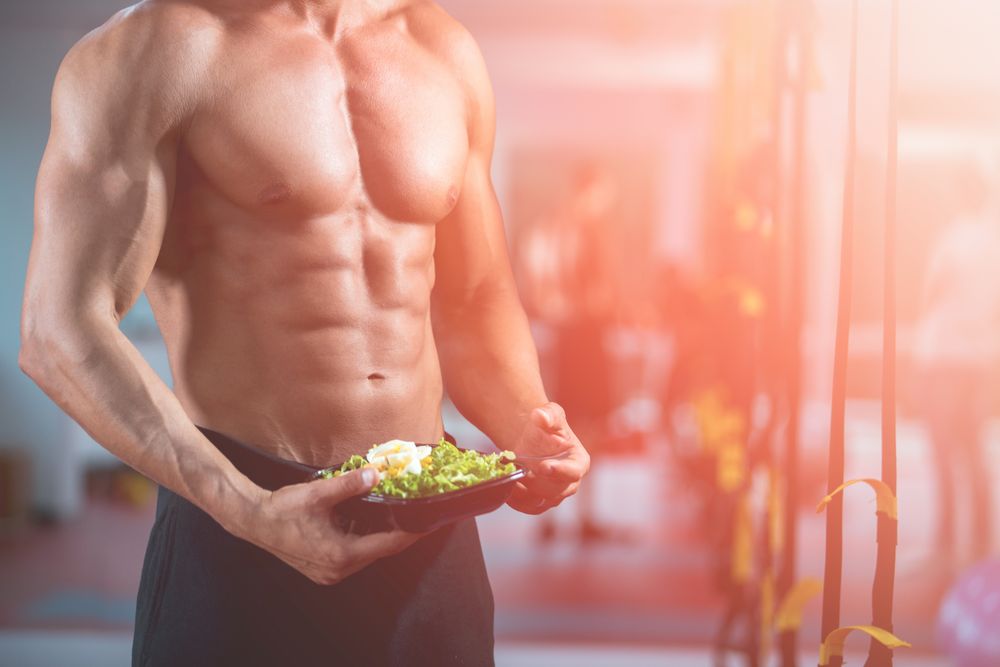Foods That Increase Size - Rapid Growth And Muscle Building Nutrients
When it comes to increasing body size and muscle mass, it is important to remember that exercise and weight lifting are only part of the equation. You should also eat foods that increase size of your body having a well-balanced diet that provides not only the protein needed to build muscle but also the energy and nutrients required to complete your workouts.
Author:Daniel ClarkReviewer:Gabriel MartinezJul 06, 202339 Shares38.9K Views
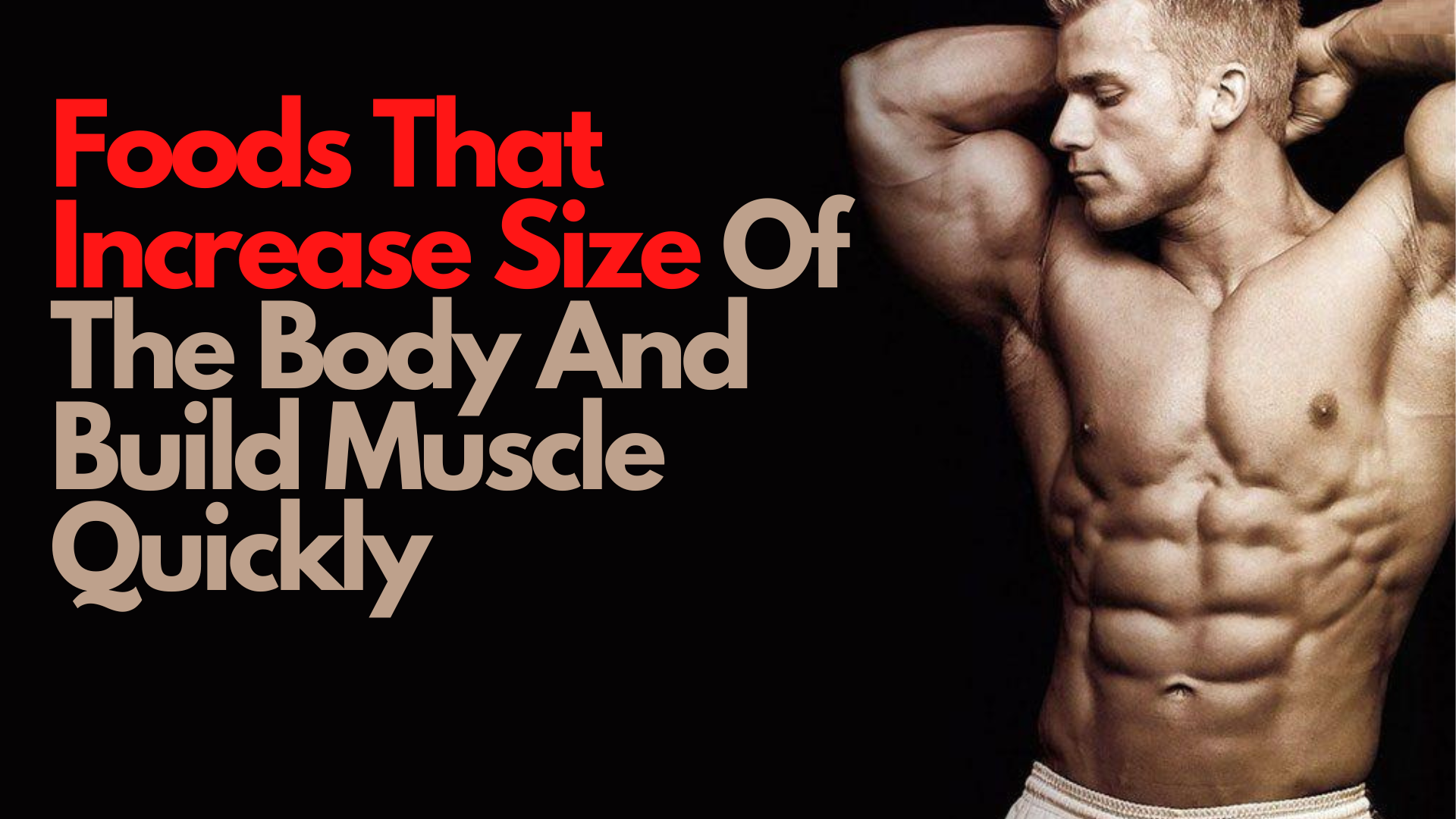
When it comes to increasing body size and muscle mass, it is important to remember that exercise and weight lifting are only part of the equation.
You should also eatfoods that increase sizeof your body having a well-balanced diet that provides not only the protein needed to build muscle but also the energy and nutrients required to complete your workouts.
Although it is widely assumed that protein is the most important nutrient for muscle growth, it is far from the only component that contributes to an optimal diet for total body growth.
To promote muscle growth, a balanced diet rich in fruits and vegetables, complex carbohydrates, healthy fats, and good protein sources is required.
To help you out, here are some of the top foods that increase size of the body and will help to build muscle quickly.
Macronutrients For Size And Muscle Building
Macronutrients are the essential nutrients that our bodies require in large quantities to support various physiological functions. When it comes to size and muscle building, macronutrients play a critical role in providing the necessary fuel and building blocks for muscle growth, repair, and overall development. The three primary macronutrients are protein, carbohydrates, and fats, each serving unique purposes in supporting muscle growth and optimizing performance.
Protein
Protein is often regarded as the cornerstone of muscle building. It consists of amino acids, which are the building blocks of muscle tissue. When you engage in resistance training or intense physical activity, protein is essential for repairing and rebuilding muscle fibers. It also helps to regulate metabolism, support immune function, and maintain healthy hormonal balance.
Good sources of protein include lean meats like chicken, turkey, and beef, fish such as salmon and tuna, eggs, dairy products like Greek yogurt and cottage cheese, legumes such as lentils and beans, and plant-based sources like tofu and tempeh. Consuming an adequate amount of protein throughout the day is crucial to support muscle growth and repair.
The recommended daily protein intake for individuals engaging in intense weight training or muscle-building activities is approximately 1.2 to 2.0 grams of protein per kilogram of body weight. It is important to distribute protein intake evenly throughout the day to maximize muscle protein synthesis.
Carbohydrates
Carbohydrates are the body's primary source of energy. They provide the fuel needed to power through intense workouts and support muscle glycogen replenishment after exercise. Carbohydrates also play a role in stimulating insulin release, which aids in muscle growth and nutrient delivery to the muscles.
When it comes to carbohydrates, it's important to distinguish between complex carbohydrates and simple carbohydrates. Complex carbohydrates, such as whole grains, vegetables, and legumes, provide a steady release of energy and are rich in fiber and essential nutrients. Simple carbohydrates, found in processed foods, sugary snacks, and beverages, provide quick energy but lack nutritional value.
For muscle building, focus on consuming complex carbohydrates as they provide sustained energy and support overall health. Opt for whole grains like brown rice, quinoa, and oats, as well as fruits, vegetables, and beans.
Fats
Fats are often misunderstood and unfairly demonized. However, they are crucial for optimal health and muscle building. Fats provide essential fatty acids that support hormone production, including testosterone, which is important for muscle growth. They also aid in nutrient absorption and help regulate inflammation.
Healthy fats can be found in foods such as avocados, nuts, seeds, fatty fish like salmon and mackerel, olive oil, and coconut oil. It's important to include a variety of healthy fats in your diet while maintaining moderation, as fats are high in calories.
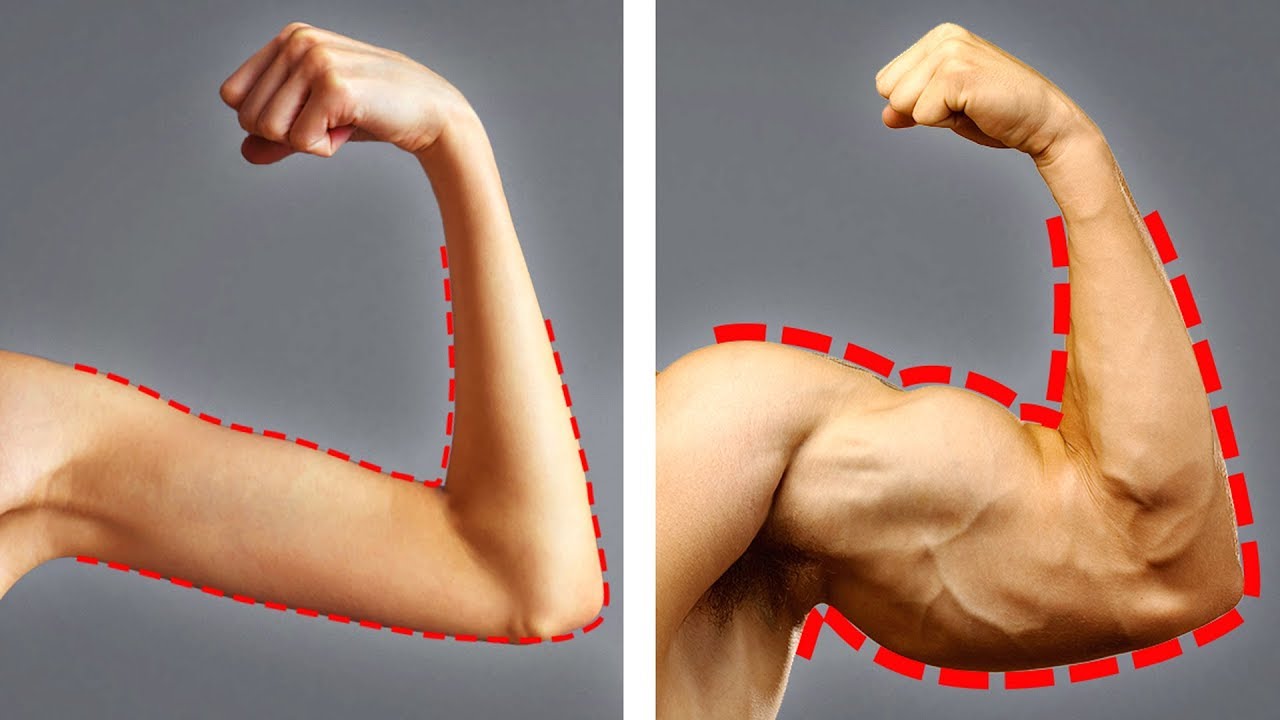
19 Foods to Build Muscle and Gain Weight Faster
Micronutrients For Size And Muscle Building
Micronutrients are essential nutrients required by our bodies in smaller quantities, but they are no less important for size and muscle building. While macronutrients provide the energy and building blocks, micronutrients play a crucial role in supporting various physiological processes, including muscle growth, repair, and overall health. These micronutrients include vitamins and minerals, which work in synergy to optimize muscle function and promote optimal performance.
Calcium
Calcium is vital for muscle contraction, including the contraction and relaxation of skeletal muscles during exercise. It also plays a crucial role in maintaining strong bones and preventing muscle cramps. Adequate calcium intake is essential for muscle strength and overall muscle function.
Good sources of calcium include dairy products such as milk, yogurt, and cheese, as well as leafy green vegetables like kale and spinach, fortified plant-based milk alternatives, and certain fish like salmon and sardines.
Iron
Iron is an essential mineral that plays a key role in oxygen transport and energy production. It is necessary for the synthesis of hemoglobin, which carries oxygen to the muscles. Iron deficiency can lead to decreased muscle function, fatigue, and reduced athletic performance.
Iron-rich food sources include red meat, poultry, fish, legumes, spinach, tofu, and fortified cereals. Consuming vitamin C-rich foods, such as citrus fruits and bell peppers, alongside iron-rich foods can enhance iron absorption.
Vitamin D
Vitamin D is important for muscle function, growth, and repair. It aids in the absorption of calcium, which is crucial for muscle contraction. Low levels of vitamin D have been associated with muscle weakness and increased risk of muscle injuries.
The primary source of vitamin D is sunlight. Additionally, it can be obtained from fatty fish like salmon and mackerel, egg yolks, fortified dairy products, and fortified cereals. In cases where sunlight exposure is limited, supplementation may be necessary under the guidance of a healthcare professional.
Other important micronutrients for muscle building include magnesium, which supports muscle contraction and energy metabolism, and zinc, which is involved in protein synthesis and tissue repair. These micronutrients can be found in a variety of foods, including nuts, seeds, whole grains, lean meats, and legumes.
Superfoods For Rapid Growth And Muscle Building
Superfoods are nutrient-dense foods that provide a wide array of essential vitamins, minerals, antioxidants, and other beneficial compounds. Incorporating superfoods into your diet can enhance rapid growth and support muscle building by providing an abundance of nutrients that promote muscle repair, recovery, and overall health. Here are some superfoods that are particularly beneficial for rapid growth and muscle building:
Whole Eggs
Eggs, with their rich reserves of the essential amino acid leucine, play a vital role in facilitating muscle recovery after exercise. Whole eggs stand out as a potent catalyst for protein synthesis. Remarkably, incorporating whole eggs into your post-workout nutritionroutine can result in a muscle-building response that surpasses that of consuming egg whites alone by a significant 40 percent.
Chicken
Chicken is an excellent protein source with minimal fat content, making it a valuable addition to your lunch or dinner, especially when combined with a regular exercise regimen. By incorporating chicken into your diet and following a consistent workout routine, you can effectively support muscle gains.
Quinoa
Quinoa stands out among plant foods as it contains all nine essential amino acids, making it a complete protein source. Additionally, it offers a wealth of nutrients, including fiber, magnesium, B vitamins, calcium, phosphorus, vitamin E, potassium, and iron – just to name a few. Surprisingly, even though it is a seed, every 100g of cooked quinoa provides approximately 5 grams of protein, making it a remarkable and nutritious choice for your diet.
Whey
Whey protein is a protein supplement and meal replacement ingredient made up of proteins found naturally in milk. It has a high concentration of two proteins known as beta-lactoglobulin and alpha-lactalbumin. Whey has one of the highest protein bioavailability scores of any food and is digested faster than other proteins such as casein, making it a popular choice among bodybuilders.
Tofu
Tofu is an excellent vegetarian protein source. All types of protein provide the amino acid building blocks needed to form new muscle, but some foods have a better amino acid profile than others. Tofu contains a high concentration of essential amino acids, which must be obtained through diet because the body cannot produce them.
In one study, soy protein was found to be comparable to whey protein in terms of preventing exercise-induced muscle damage and aiding recovery in soccer players.
Peas
A cup of cooked green peas has approximately 9 grams of protein. Pea protein powder is becoming increasingly popular as a vegan protein source. One study discovered that combining pea protein with resistance training resulted in a greater increase in muscle thickness after 12 weeks than training alone.
The results were especially noticeable in people who were starting or returning to training after a break, and they were comparable to a third group that took whey protein.
Lean Beef
Beef has remained at the top of the list of best muscle-building foods for decades, and for good reason. Beef contains a protein-building combination of essential amino acids, B vitamins, and creatine.
Beef also contains a combination of saturated fat, which can help maintain healthy testosterone levels, and monounsaturated fat, which is good for your heart. According to University of Melbourne research, people who consume more red meat experience lower levels of anxiety and stress.
Eating Habits To Increase Body Size
To achieve size, muscle, and strength gains, it is crucial to maintain a consistent and well-rounded approach to nutrition and fitness. Regardless of your specific goals, both your diet and exercise routine can be tailored to support your desired outcomes.
When it comes to building muscle, strategic adjustments in both movement and nourishment are essential. Alongside consuming foods that promote body growth, adopting proper eating habits is also vital in bodybuilding.
Determining the optimal calorie surplus for muscle gain while maintaining leanness may require some experimentation. Here are a few established eating habits that have proven effective in increasing body size.
Eat Breakfast To Increase Body Mass
By incorporating a balanced breakfast into your routine, you can experience an instant boost of energy while ensuring satiety until your next meal or snack. Additionally, this practice sets a positive tone for the rest of the day, often leading to healthier eating choices overall. When aiming to increase muscle mass, breakfast options such as omelettes, smoothies, and cottage cheese prove to be highly beneficial. These protein-rich foods can support muscle growth effectively.
Eat Every Three Hours
Strategic food consumption is crucial for maximizing muscle mass gains. One effective approach is to maintain a regular eating schedule, including breakfast, lunch, and dinner, while incorporating specific meals post-workout, before bed, and two snacks in between.
This consistent food intake helps regulate hunger levels by opting for smaller, more frequent meals instead of a few large ones, leading to a reduction in stomach size. As a result, you'll experience a faster feeling of fullness, witness a reduction in waist size, and encounter fewer cravings along the way.
Eat Protein During Each Meal
Muscle growth and maintenance necessitate an adequate protein intake. To meet this requirement, it is recommended to consume at least 1 gram of protein per 454 grams of body weight. For instance, if you weigh 91 kilograms, your daily protein target would be 200 grams.
The most straightforward approach to achieving this goal is to include a complete protein source in each of your meals. By doing so, you ensure that your body receives the necessary protein to support muscle growth and maintenance.
Eat Carbohydrates Only After Workout
Carbohydrates play a vital role in providing energy, but it's common for individuals to consume more than necessary. To optimize your carbohydrate intake, consider limiting it to immediately after your workout when your body can utilize it effectively.
Additionally, make it a habit to include fruits and vegetables in every meal as they provide essential nutrients and generally contain fewer carbohydrates than whole grains, with the exception of corn, carrots, and raisins. Opting for whole grains over refined white carbohydrates is also recommended for better overall nutrition.
Always Drink Water
Engaging in strength training can lead to water loss through perspiration, which can hinder muscle recovery and potentially impede muscle mass gains. It is essential to replenish this lost water by staying adequately hydrated.
Drinking water not only helps prevent dehydration but also assists in managing hunger, as an empty stomach can trigger feelings of hunger. By maintaining proper hydration, you support muscle recovery and optimize your body's ability to build muscle mass effectively.
People Also Ask
What Increases Muscle Size Most?
Hypertrophy refers to an increase in muscular size achieved through exercise. When you work out, if you want to tone or improve muscle definition, lifting weights is the most common way to increase hypertrophy.
What Causes Muscles To Grow Faster?
Muscle size increases when a person continually challenges the muscles to deal with higher levels of resistance or weight. This process is known as muscle hypertrophy. Muscle hypertrophy occurs when the fibers of the muscles sustain damage or injury.
Can Skinny Guys Gain Muscle?
According to fitness experts, a slim man can gain muscle. The added benefit for you is that your body fat levels are naturally low, so when you do gain muscle, you'll be able to achieve a ripped appearance.
Conclusion
Prioritizing foods that increase size of your body and muscle growth is of utmost importance. Building a strong and muscular physique takes time and requires a combination of patience, consistency, and a well-balanced diet. By nourishing your body with the recommended foods outlined in this article, you can significantly enhance your chances of achieving long-term success in muscle building.
If you require personalized guidance in creating a suitable diet plan for increasing your body size and promoting muscle growth, it is highly recommended to consult with a registered dietitian or a qualified sports nutritionist. Their expertise will help ensure that you have an appropriate and tailored approach to reach your specific goals.

Daniel Clark
Author
Daniel Clark is an experienced author at Tennessee Independent, renowned for delivering insightful articles with a professional approach. With a focus on factual accuracy and authoritative insights, Daniel covers a wide range of topics, providing valuable information and engaging narratives. His expertise in areas such as performance, player profiles, and current events ensures that readers receive trustworthy and informative content. Daniel's commitment to delivering well-researched articles makes him a reliable source for expert perspectives on Tennessee Independent.

Gabriel Martinez
Reviewer
Gabriel Martinez is a respected author at Tennessee Independent, renowned for his expertise in covering News and Sports topics. With a comprehensive understanding of current events and a knack for delivering accurate and engaging content, Gabriel provides readers with insightful analysis and compelling narratives. His dedication to factual accuracy and commitment to delivering authoritative content make him a trusted source for news and sports enthusiasts on Tennessee Independent.
Latest Articles
Popular Articles
